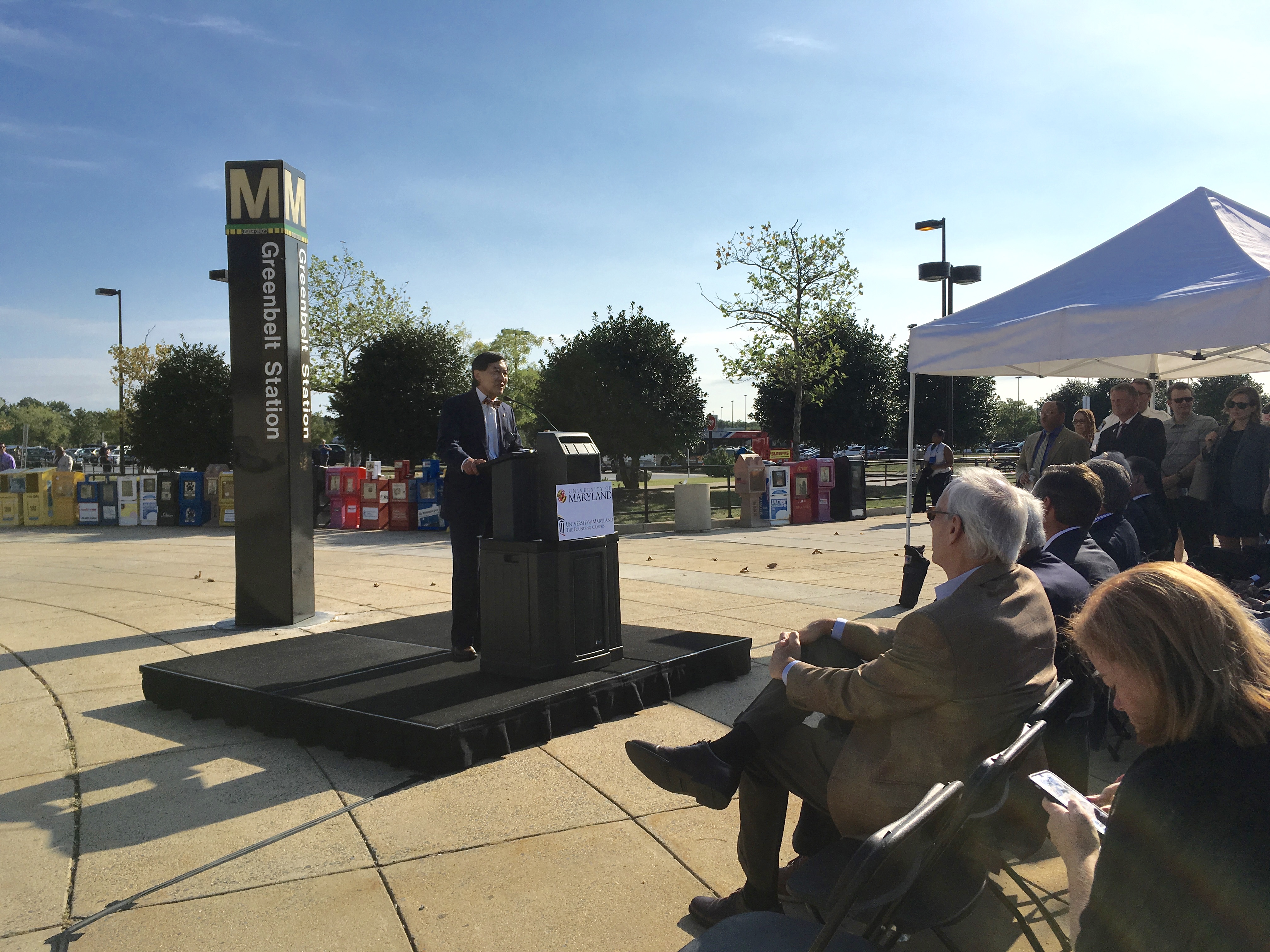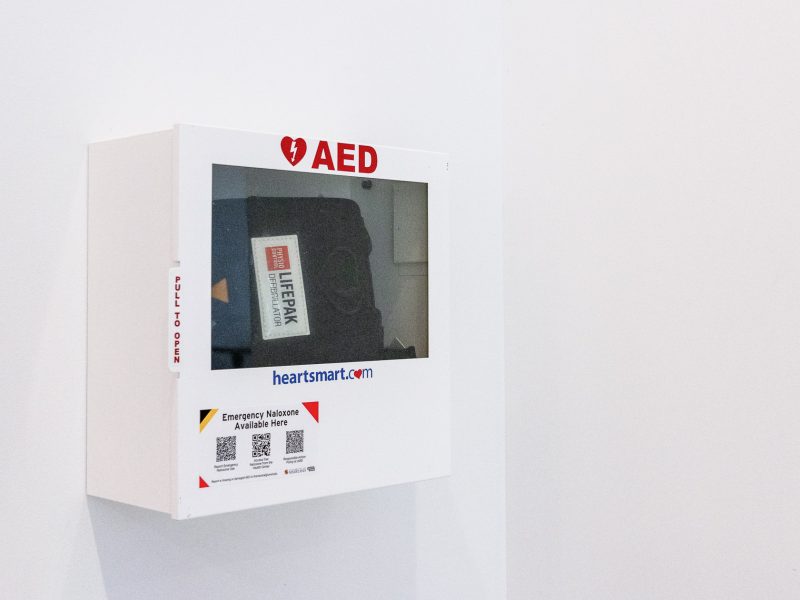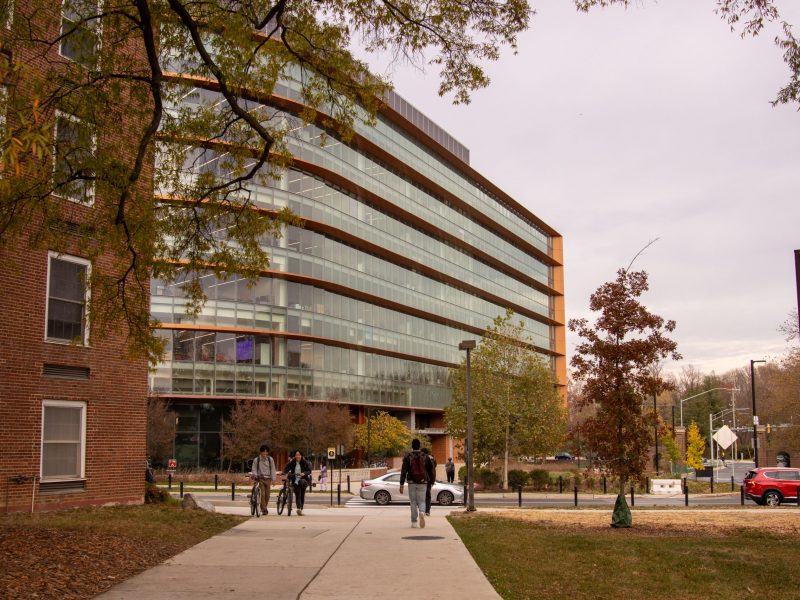By Andrew Dunn and Rebecca Rainey
Staff Writers
University of Maryland officials, as well as state officials announced Tuesday a plan to create a new national security academy in Greenbelt. It would collaborate with the FBI in research and educational opportunities.
The Maryland Academy for Innovation in National Security will build on many existing programs at this university, including the Maryland Cybersecurity Center, the Center for the Advanced Study of Languages and the National Consortium for the Study of Terrorism and Responses to Terrorism. It hopes to “help foster continuous innovation at the world’s preeminent intelligence-led law enforcement organization,” according to a university memo.
“The Maryland Academy will be the national leader in counter terrorism studies,” said William Braniff, consortium executive director, at Tuesday morning event at Greenbelt Metro Station.
University President Wallace Loh, University of Maryland, Baltimore President Jay Perman, University System of Maryland Chancellor Robert Caret and Maryland House of Delegates Speaker Michael Busch were also present at Tuesday’s event, along with other officials.
Braniff said that through research, simulations and internships, the program will be able to provide data to the FBI and will create a “thriving ecosystem where the FBI can recruit their best talent.”
Tuesday’s announcement also continued to advocate for Greenbelt as the potential landing spot for the FBI’s new headquarters.
“Consider three things: location, location, location,” said Loh, who took the stage Tuesday morning. “The FBI needs to be close in proximity to the large research university in the region.”
Loh also pointed out that it would make sense for the FBI to choose this location because this university is the primary producer of college graduates for the FBI.
“There are no universities in Springfield, in Virginia, that can offer that,” added Busch at the event.
The agency is considering Greenbelt, as well as Landover and Springfield, Virginia, as locations for their new headquarters, which could cost more than $2.5 billion, according to The Washington Post.
“This is the best place for the FBI because of what we can do for them,” added Allan Kittleman, Howard County executive, noting this university’s partnership with UMB and its proximity to Greenbelt.
Braniff said in an interview before Tuesday’s event the partnership benefits both students and the FBI and makes Greenbelt a more appealing relocation choice. He added that the partnership would not be costly, as most of the relevant research is already happening. The improved relationship between this university and the FBI could also lead to more FBI-funded research as a secondary effect of this partnership, he said.
“We definitely have the expertise in the state to give the FBI what it needs,” said Caret at the event Tuesday morning. “We can provide the ecosystem they need and want. Let’s make it happen.”
Greenbelt is “the ideal development site for the FBI” — a place where the FBI “would have access to world-class research and talent pool,” according to the memo. A Greenbelt FBI would provide the MPowering the State partnership with a “brick-and-mortar, highly relevant and highly visible focal point for the collaboration,” the memo read.
“We need to tell our story as Prince George’s County,” said Todd Turner, member of the Prince George’s County Council, at the event. “The opportunity we have for development around our Metro station benefits not only Prince George’s County, but the state of Maryland.”
Donald Tobin, dean of this university’s law school in Baltimore, said Greenbelt gives the FBI the unique benefit of having a relationship with two leading universities that are already aligned and coordinated through the Maryland Academy plan, a strategic partnership between the College Park and Baltimore campuses, in the national security field.
And the headquarters could be coming sooner than later, Busch said.
“We believe at the end of the year this can come to fruition and we can start to build,” he added.



